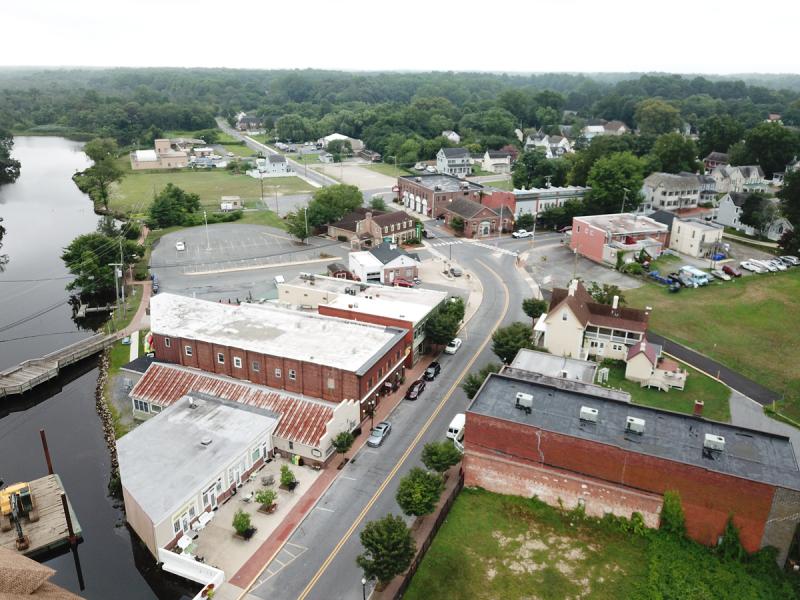Milton council approves fiscal year 2024 budget
By a unanimous vote, Milton Town Council approved the fiscal year 2024 budget, despite some last-minute citizen opposition of a 9% property tax increase.
At the council's Sept. 11 meeting, the main task was to formally pass the budget, after tabling it following a public hearing to allow for last-minute adjustments. All told, very little about the budget changed after it was initially unveiled in July. The $3.5 million budget features a small surplus of $6,000, but the town had to increase taxes and pull from reserve funds to get there.
The 9% property tax increase takes rates from $0.295 per $100 of assessed value to $0.324 per $100 of assessed value. This comes on the heels of a 17% increase in the fiscal year 2023 budget. The town previously increased property taxes in fiscal years 2015 and 2021, with taxes going up by 11% in 2015 and by 5% in 2021.
As he has all along, Mayor John Collier said at the Sept. 11 meeting that the increase is to keep services at a level citizens have grown accustomed to. The increase is expected to bring the property tax revenue to $1.67 million, which serves as one of the largest revenue generators for the town, in addition to realty transfer taxes.
Other fee increases include raising the police staffing fee, which is charged when a person or entity requests or requires a police officer on site to staff an event. That fee rises from $50 to $65. Also, trash collection is slated to go from $63.50 per quarter to $70 per quarter. On Aug. 7, council unanimously approved a new three-year contract with GFL to handle trash and recycling services. The budget also calls for instituting a $100 fee for emergency public works call-ins.
By utilizing reserves, the town is able to have a small capital improvement plan, with projects including street resurfacing and sidewalk repair, fixing the roofing and siding at town hall, replacing the deck boards at Governor’s Walk and Magnolia Street, and purchasing two police patrol vehicles and a utility body truck.
The town supplemented its own funding with grant funding for the street and sidewalk projects and the police cars. In addition, the town will begin work this fiscal year on a new well and treatment facility on land the town owns on Federal Street next to the Rails to Trails. That project is funded by federal money from the American Rescue Plan Act. All told, capital projects comprise 9% of the budget.
While the public hearing on the budget was held in August, members of the public were still able to weigh in during the public participation portion of the meeting.
Chestnut Street resident Jeff Seemans was critical of the town’s fiscal management, going through a list of expenses that have been passed on to citizens. He said in 2020 he had to replace 70 linear feet of sidewalk. He said the town had been discussing providing help to citizens like him that had to put in a sidewalk, but that never happened. So he was left having pay $5,000 to get the work done. At that point, Seemans took out a piece of paper and tore it up, saying that a small piece of his retirement savings is now gone. In 2021, Seemans said, the town did a tax increase, to which he again ripped up a piece of paper, saying a portion of his social security check is now gone. And now, he said, another tax increase, and he ripped up another piece of paper symbolizing his social security check.
Seemans said council should review the budget and find ways to trim it, whether in terms of personnel or capital projects. He said citizens should have options to know what they are losing if a tax increase did not go through.
“Is this going to be an annual event? I hope not,” Seemans said.
In response, Collier said that while, yes, there are areas that could theoretically be cut, at what point will citizens no longer tolerate services being cut? He said he does not like tax increases, and lives on a fixed income himself. Collier said town staff continually seeks grant funding, both locally and federally, to offset money that comes out of the town’s budget.
“Please don’t think we’re just arbitrarily doing this because we decided ‘Oh, now is a good time for a tax increase,’” he said.
Ryan Mavity covers Milton and the court system. He is married to Rachel Swick Mavity and has two kids, Alex and Jane. Ryan started with the Cape Gazette all the way back in February 2007, previously covering the City of Rehoboth Beach. A native of Easton, Md. and graduate of Towson University, Ryan enjoys watching the Baltimore Ravens, Washington Capitals and Baltimore Orioles in his spare time.






















































